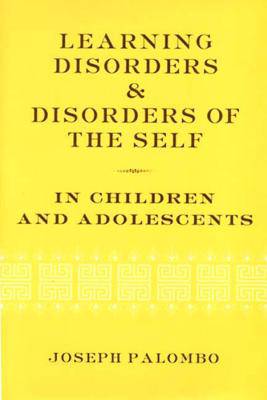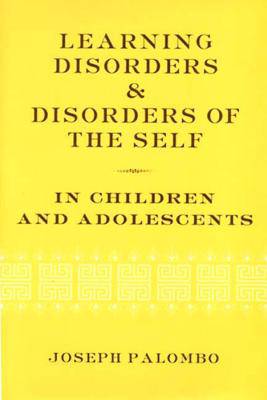
- Retrait gratuit dans votre magasin Club
- 7.000.000 titres dans notre catalogue
- Payer en toute sécurité
- Toujours un magasin près de chez vous
- Retrait gratuit dans votre magasin Club
- 7.000.000 titres dans notre catalogue
- Payer en toute sécurité
- Toujours un magasin près de chez vous
Learning Disorders & Disorders of the Self in Children & Adolescents
Joseph Palombo
Livre relié | Anglais
34,95 €
+ 69 points
Description
This book presents a theoretically integrated conceptual framework, based on psychoanalytic self psychology, to understand and treat children and adolescents whose development has been derailed by learning disorders. It addresses the concerns of two audiences: psychotherapists who treat children and adolescents with learning disorders, and professionals, such as neuropsychologists, clinical and school psychologists, and learning-disability specialists, who are involved in the assessment and remediation of children's learning disorders.
Taking as his starting point the principle that all psychopathology must be understood from a developmental perspective, Palombo conceptualizes disorders of the self as occurring at the intersection between the context within which the child is raised and the neuropsychological strengths and weaknesses he or she brings to that context. The desire for a cohesive sense of self and coherent self-narrative is a central motive organizing the child's development. When a child has a learning disorder and the relationship between the child's context and neuropsychological deficits is out of balance, the effects are seen in school performance, relationships, sense of self, and self-narrative.
To illustrate his conceptualization, Palombo uses five common learning disorders: dyslexia, attention deficit disorder, executive dysfunction disorder, nonverbal learning disability, and Asperger's disorder. The probable effects of each disorder on development of the self are described, along with extensive case illustrations. The author then discusses treatment issues, including how and when to recommend psychotherapy, how to think about the treatment process, and how to work with the parents of a child with a learning disorder.
It is inevitable that child therapists will see children and adolescents with learning disorders and that learning-disability specialists will encounter children whose self and relationships have been shaped by neurological deficits. With this interdisciplinary book in hand, these professionals will be able to understand and treat children with these complex disorders.
Taking as his starting point the principle that all psychopathology must be understood from a developmental perspective, Palombo conceptualizes disorders of the self as occurring at the intersection between the context within which the child is raised and the neuropsychological strengths and weaknesses he or she brings to that context. The desire for a cohesive sense of self and coherent self-narrative is a central motive organizing the child's development. When a child has a learning disorder and the relationship between the child's context and neuropsychological deficits is out of balance, the effects are seen in school performance, relationships, sense of self, and self-narrative.
To illustrate his conceptualization, Palombo uses five common learning disorders: dyslexia, attention deficit disorder, executive dysfunction disorder, nonverbal learning disability, and Asperger's disorder. The probable effects of each disorder on development of the self are described, along with extensive case illustrations. The author then discusses treatment issues, including how and when to recommend psychotherapy, how to think about the treatment process, and how to work with the parents of a child with a learning disorder.
It is inevitable that child therapists will see children and adolescents with learning disorders and that learning-disability specialists will encounter children whose self and relationships have been shaped by neurological deficits. With this interdisciplinary book in hand, these professionals will be able to understand and treat children with these complex disorders.
Spécifications
Parties prenantes
- Auteur(s) :
- Editeur:
Contenu
- Nombre de pages :
- 352
- Langue:
- Anglais
Caractéristiques
- EAN:
- 9780393703771
- Date de parution :
- 17-07-01
- Format:
- Livre relié
- Format numérique:
- Genaaid
- Dimensions :
- 161 mm x 240 mm
- Poids :
- 689 g







